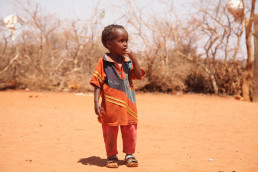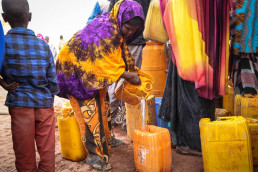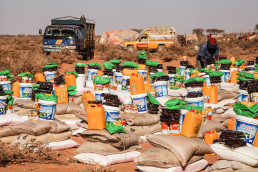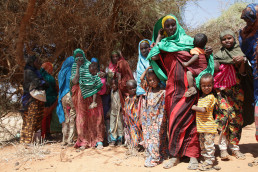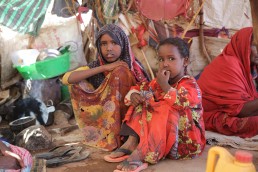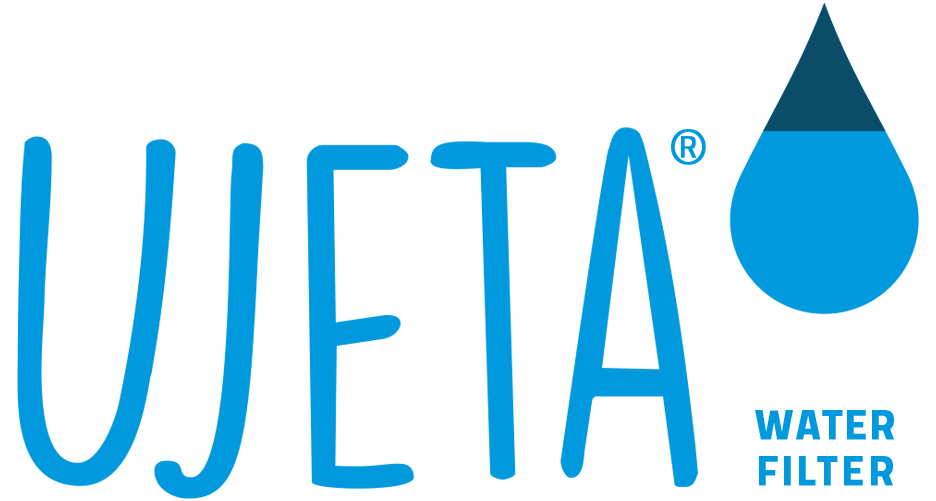
Somaliland
In Somaliland, people are faced with what is probably the most complex and the longest-lasting crisis in the world. The cause of this are various environmental and health dangers, along with periodic droughts, which in combination with the diseases frequently associated with them such as cholera or measles present major challenges, particularly for the population in rural areas.
Location:KitaleProject:Production UJETA Care, TransportYear:2017Target:20.000 €
Status
Starting position
Since the start of 2017, in Somalia alone more than 22,000 cases of diarrhoea and associated diseases were recorded, involving acute dehydration of the body and, in the worst cases, with potentially life-threatening consequences. In most cases, the cause can be diagnosed as contaminated drinking water, as people are drawing this essential elixir of life, out of necessity, from heavily polluted sources. The outbreak of acute watery diarrhoea (AWD) and cholera brought on by this has, in some cases, completely wiped out some remote communities.
The death rate amongst those who fall ill is correspondingly high, hitting above all children under the age of 5, pregnant women, breast-feeding mothers and the elderly. Access to fresh, and above all clean, drinking water has always been one of the biggest challenges of all in Somalia. This is either because the water sources are contaminated, or because for many people they are simply too far away to be able to transport larger quantities of water. This situation could well worsen further in future, due to the increasing frequency of periods of drought. In some areas, water is supplied almost exclusively using tanker lorries, but these are nowhere near sufficient to cover demand.
This is why we urgently need your support
The situation in the affected areas in Somalia remains critical, due to the outbreaks of AWD/cholera, and is unlikely to improve significantly in the near future, given the impacts of climate change. For that reason, people there are more reliant than ever on aid and support from outside. UJETA has therefore taken on the task, together with other aid organisations such as the Austrian children’s charity Kindernothilfe Österreich, of supplying the affected regions with suitable filter systems so that they can obtain fresh drinking water from contaminated water sources.
Using the handy, and exceptionally easy to operate, UJETA Care filter technology, anyone – including children and the elderly – can use water sources that are some distance away and transport water drawn off there over longer distances. The primary aim is to decisively improve hygiene conditions in individual households, thanks to this practical water filter, and to further stem the spread of diarrhoea and associated diseases such as cholera. While the aid organisations distribute vital hygiene items and make people aware of risks of disease through training, the UJETA filter systems supplied contribute to being able to largely exclude contaminated sources of drinking water as the cause of any further spread of dangerous pathogens.

